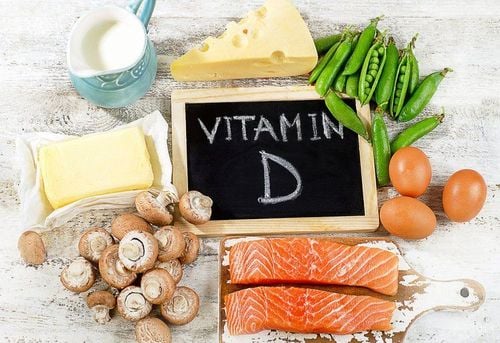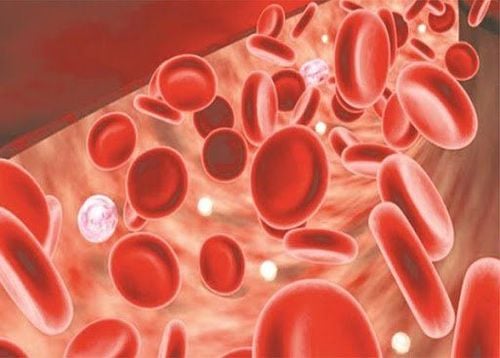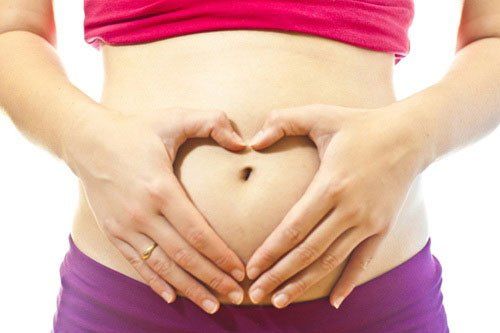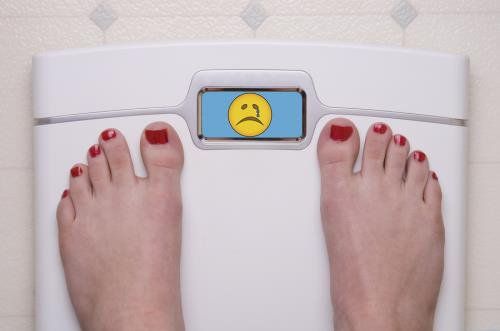This is an automatically translated article.
A suitable pregnancy nutrition, combined with exercise and reasonable rest will help the fetus develop optimally and the pregnant woman has enough health to nurture and care for her baby. Therefore, it is necessary to ensure nutrition for pregnant women throughout pregnancy, especially in the second 3 months - the period of rapid fetal growth.
1. The role of nutritional care during pregnancy
When the baby is still in the womb, the baby's nutrition depends on the mother's pregnancy nutrition. Nutrients from the mother will go through the blood, through the placenta to provide the fetus. If a mother has an adequate diet, the mother will have good resistance, not get sick, be healthy enough to give birth but quickly recover her health after giving birth, have enough milk for breastfeeding, have good health and take care of her baby. baby care.
In addition, mothers with good nutritional care before and during pregnancy will give birth to healthy babies, without fetal malnutrition or mental and motor retardation. Therefore, nutritional care for pregnant women is extremely important.
Nutrition during pregnancy also needs to be adjusted separately to suit each stage. Specifically:
During the first 3 months: This is the period when the organs and organizations of the fetus are formed such as the spinal cord, brain, lungs, liver, heart,... so the mother needs to increase the intake of rich foods. protein; Nutrition in the second trimester of pregnancy: This is a period of rapid fetal growth, skeletal development and child height, so it is necessary to increase energy response for pregnant women; In the last 3 months: This is the period when the fetus develops the fastest weight, so the mother needs to be provided with adequate and varied nutrition so that the baby is ready to be born healthy.

Chế độ dinh dưỡng hợp lý ở 3 tháng giữa rất quan trọng
2. Nutritional needs in the middle 3 months of pregnancy
The nutritional needs of pregnant women in the second trimester of pregnancy are similar to other stages, including the following important nutrients:
2.1 Needs for energy and essential nutrients
The average energy requirement of women is 2,200 kcal/day. Pregnant women in the second trimester will need an extra 360 kcal/day, which is about 2,560 kcal/day. Providing adequate energy needs during pregnancy helps pregnant women gain weight steadily.
The rate of weight gain for women of normal weight before pregnancy should be maintained at 0.4kg/week during the second and third trimesters of pregnancy. For women with low weight, the rate of weight gain should be kept at 0.5kg/week. For overweight women, the appropriate rate of weight gain is 0.3kg/week.
Needs for essential nutrients:
Protein: Necessary for the formation of the fetus, placenta and mother's body tissues. Pregnant women should increase their intake of protein-rich foods such as meat, fish, eggs, milk and legumes; Fat: Essential for building cell membranes and the nervous system of the fetus, while providing energy, supporting pregnant women to absorb fat-soluble vitamins. Pregnant women should increase the use of fats, including animal fat, coconut oil, palm oil in small amounts and soybean oil, sesame oil, fish fat in larger amounts; Fiber: Pregnant women need to add fiber from cereals, sweet potatoes, fruits, green vegetables, ... and drink a lot of water to reduce the risk of constipation and hemorrhoids.
Trắc nghiệm: Bổ sung canxi sau sinh cho sản phụ như thế nào?
Bổ sung canxi sau sinh cho sản phụ là việc làm vô cùng cần thiết, đặc biệt với những người nuôi con bằng sữa mẹ hoàn toàn. Trường hợp mẹ sau sinh không bổ sung canxi hoặc bổ sung không đúng cách sẽ ảnh hưởng rất nhiều đến sức khỏe của mẹ và sự phát triển toàn diện của bé. Bài trắc nghiệm dưới đây sẽ giúp mọi người hiểu hơn về tầm quan trọng của việc bổ sung canxi sau sinh cho sản phụ và bổ sung thế nào cho đúng cách, an toàn.2.2 Vitamin and mineral requirements
Pregnant women have higher vitamin and mineral requirements than normal. Essential vitamins and minerals for pregnant women include:
Calcium: Helps in the formation of the fetal skeletal system. The daily calcium requirement of pregnant women needs to increase by about 300mg/day, equivalent to a total need of 1,000 - 1,200mg/day. Foods rich in calcium needed for pregnant women in the second trimester of pregnancy include: dairy products, beans, green vegetables, fish, shrimp,...; Folic acid: It is essential for the development of the fetus because if a pregnant woman is deficient in folic acid, the fetus is prone to neural tube defects. Folic acid requirement in pregnant women is 600 μg/day. Therefore, pregnant women need to pay attention to supplement with folic acid-rich foods such as cabbage, broccoli, asparagus, bananas, oranges, eggs, etc. In addition to food, pregnant women should supplement folic acid with sugar. Take the dose prescribed by your doctor; Vitamin D: Supports the body to better absorb calcium and phosphorus to form the bone system. Vitamin D deficiency leads to osteomalacia, hypocalcemia causing convulsions, osteoporosis, etc. Pregnant women should bask in the sun more (at a time when it's cool, not too hot), and at the same time supplementing with foods of natural origin. animals rich in vitamin D such as cod liver, butter, milk, eggs, fatty fish,...; Vitamin A: Pregnant women during pregnancy, especially in the second trimester, need a reserve of vitamin A to provide for the baby and increase the mother's resistance. The vitamin A requirement of pregnant women is 800 μg/day. Some foods rich in vitamin A are very good for health, including: liver, egg yolks, milk, meat, green, yellow, red vegetables,... However, it should be noted if pregnant women consume too much. Vitamin A can cause birth defects. Therefore, pregnant women need vitamin A supplements as prescribed by the doctor; Vitamin B1: Pregnant women need to be provided with enough vitamin B1 to avoid numbness. Foods rich in vitamin B1 should be added to the pregnant woman's diet, including pork, vegetables, legumes, some fish, ...

Vitamin D giúp phòng ngừa loãng xương ở mẹ bầu
2.3 Other micronutrient needs
Iron: A micronutrient that is essential for the health of pregnant women and fetuses. Pregnant mothers, especially in the second trimester of pregnancy, should increase their intake of foods with high iron content such as meat, animal liver, clams, oysters, snails, cereals, beans, etc. to prevent prevent anemia for pregnant women. The reason is that if a pregnant woman is anemic, it can cause premature birth, stillbirth or heavy bleeding after birth. In addition, pregnant women should take an iron supplement, take it from the time of pregnancy and last until 1 month after giving birth. At the same time, to better absorb iron, increase the use of foods rich in vitamin C; Iodine: A micronutrient that plays a very important role in pregnant women. Pregnant women with iodine deficiency have a high risk of miscarriage, stillbirth, premature birth or babies born with mental retardation, low birth weight, birth defects, etc. , pregnant women should supplement with iodine-rich foods such as sea fish, seaweed and use salt with iodine added, to ensure the iodine demand reaches 200 μg/day; Zinc: Pregnant women should supplement with zinc-rich foods to reach a total dose of 20 mg/day. The reason is that if zinc deficiency, the fetus is prone to low birth weight, short height and prone to birth defects.
Mẹ bầu cần bổ sung sắt để không bị thiếu máu
3. Some notes on nutrition in the second trimester of pregnancy
Pregnant women throughout pregnancy, especially in the second trimester, should note:
Absolutely do not smoke, drink alcohol or use stimulants. If people around smoke should stay away to avoid inhaling harmful smoke. The reason is because stimulants can make the heart beat faster, cause nausea, headaches, affect the development of the fetus; Reduce the intake of spicy and sour spices such as chili, pepper, vinegar, and garlic because they can cause stomach pain, hemorrhoids and constipation; Limit coffee and processed foods; Choose fresh, clean and high nutritional value foods, ensure food hygiene and safety, eat cooked, drink boiled; Do not eat full before going to bed and should eat slowly, sit up straight when eating; If morning sickness should divide meals during the day and avoid foods with odors; Reduce salt intake for pregnant women with edema, hypertension or pregnancy toxicity,... to avoid complications during childbirth; Limit sweets because too much sugar can lead to calcium loss, easy weight gain and gestational diabetes; There is no need to be too abstinent, should not eat only a few types of food or eat too many sour, spicy foods, ... because it is easy to cause lack of nutrients for mother and baby. Meals of pregnant women should be varied with different foods; Drink a lot of water; The use of drugs during pregnancy should be cautious, strictly follow the instructions of the doctor. During the second trimester of pregnancy, pregnant women do not have much morning sickness, can eat more comfortably, so they need to eat enough to provide enough essential nutrients for the needs of mother and baby. Every woman should pay attention to her diet during pregnancy, build a scientific menu to have a healthy pregnancy. In case you want to have a scientific diet, pregnant women should seek nutritionists for advice and more details.
To ensure the best health of pregnant women and fetuses, you should choose to register for all-inclusive Maternity packages at reputable medical facilities to be regularly examined and monitored by doctors for treatment. timely arising, risks occur during pregnancy and after labor.
At Vinmec International General Hospital, there is a package maternity service as a solution to help pregnant women feel secure because of the companionship of the medical team throughout the pregnancy. When choosing Maternity Package, pregnant women can:
The pregnancy process is monitored by a team of highly qualified doctors Regular check-ups, early detection of abnormalities The Package Maternity package helps to facilitate convenient for the birthing process Newborns get comprehensive care
Please dial HOTLINE for more information or register for an appointment HERE. Download MyVinmec app to make appointments faster and to manage your bookings easily.
Taking care of pregnant women's health: A handbook for pregnant women to know
MORE:
Impact of fetal malnutrition on child development from before pregnancy













